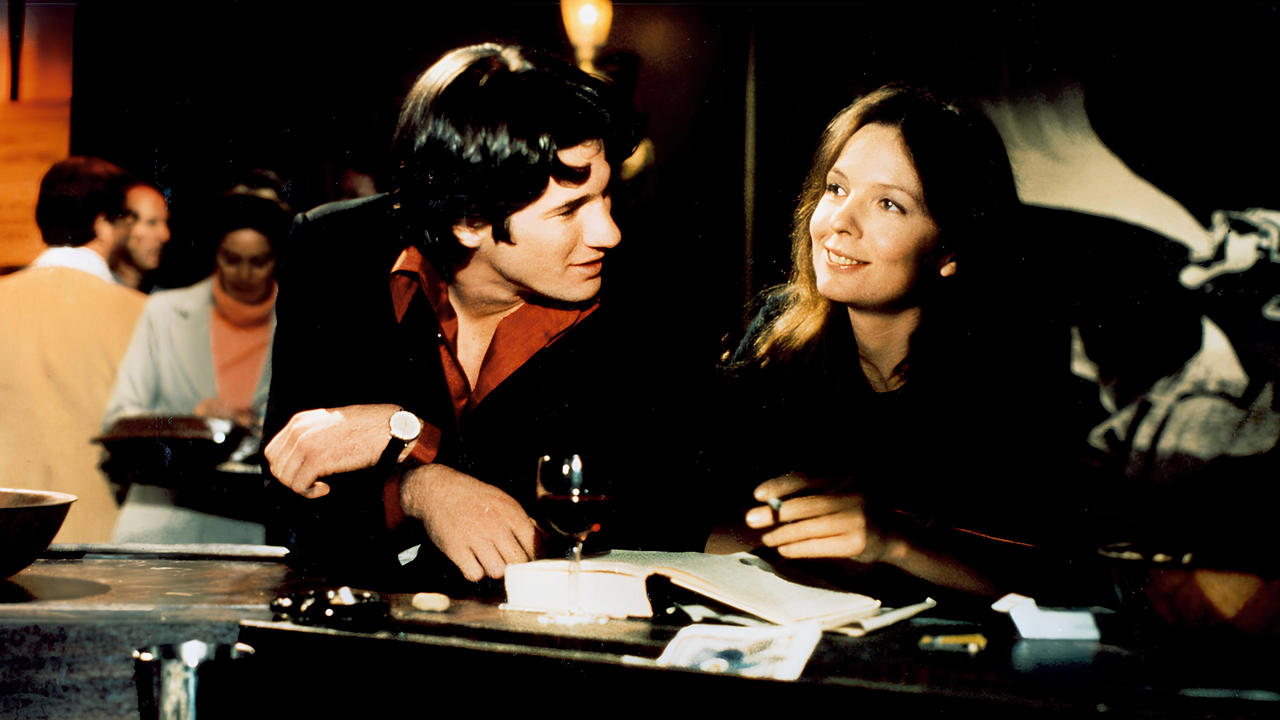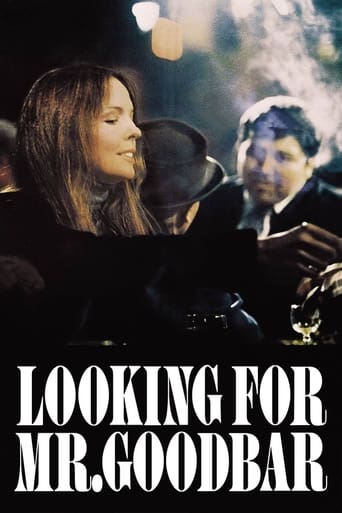



I like the storyline of this show,it attract me so much
View MoreSorry, this movie sucks
everything you have heard about this movie is true.
View MoreTells a fascinating and unsettling true story, and does so well, without pretending to have all the answers.
View MoreOn Jan. 2, 1973 a 28-year-old schoolteacher named Roseann Quinn was stabbed to death in her New York City apartment by John Wayne Wilson, a drifter from Indiana she picked up in a bar across the street from her home on W. 72nd Street. Roseann Quinn's brutal murder revealed that she had lived a double life—as a respected, skilled and devoted teacher of deaf-mutes by day and a habitué of Westside bars at night, where she picked up random men for rough sex on a regular basis. Ms. Quinn's strange and lurid story generated reams of titillating newspaper fodder. It also prompted novelist Judith Rossner to write a best selling quasi-fictionalized version of her life and death: 'Looking for Mr. Goodbar' (Simon & Schuster, 1975). Writer-director Richard Brooks ('Lord Jim'; 'In Cold Blood') brings Rossner's book to the screen with somewhat ambiguous results. Diane Keaton's performance as Teresa Dunn (the Roseann Quinn figure) is mesmerizing—far and away, the best of her career—but Richard Brooks' screenplay turns Dunn/Quinn into a daring sexual rebel, druggie, and reckless hedonist when the evidence suggests that the real Roseann Quinn was a desperately lonely and decidedly masochistic personality who sought out abusive sexual encounters in keeping with her own low self-esteem (which stemmed from a repressive Irish Catholic upbringing and a congenital back deformation that left her ashamed of her body). By turning Roseann Quinn into the far more beautiful and charismatic Teresa Dunn, Brooks turns her death into a voyeuristic thriller for male viewers and a cautionary tale for sexually liberated women everywhere: they had better be careful flaunting their sexual assets or they might end up the victims of homicidal male rage. Despite these distortions, 'Looking for Mr. Goodbar' remains an eerily sinister and deeply disturbing film. Rivaling Diane Keaton's performance is that of Tuesday Weld, who plays Teresa's sybaritic but world-weary older sister, Katherine. Indeed Weld was so good she was nominated for a Best Supporting Oscar. 'Looking for Mr. Goodbar' also marks the film debut of Richard Gere as Tony Lo Porto, the John Wayne Wilson figure.
View MoreIt was searching for a copy of this that led me to a source of otherwise unavailable films but the lengthy running time has put me off watching it, for some time. Also, I cannot now remember what got me intrigued by the title anyway. In any event the thing is now watched. It seems to me there is a bit too much of everything here, certainly Richard Gere and Tuesday Weld who are well over the top. Keaton is fine but her character begins to irritate halfway through, what with all her neediness and simultaneously thrusting of people aside, her wonderfully virtuous deaf classes, adding nothing whatsoever and the growing tedium of the shadowy scenes of sex and drugs. Brave of Keaton to take the role but if only Brooks could have kept it to something more like 90 minutes we would surely have had a much more succinct and effective movie. Too many characters to little effect and too many downers and not enough uppers.
View MoreI saw this movie many years ago and never really understood how tragic it was until I viewed it at an older age. I appreciate this masterpiece as I was intrigued by Theresa's story. So much so, that I read Judith Rossner's book and searched the internet for the truth behind the story. It is no secret that this tale was about Roseann Quinn and the tragic end to her life. I hits home as that the main character is really not too much different than some of the women that I knew in my young adulthood. It only took one bad decision to end it all. Diane Keaton did a wonderful job in this role. She seemed so sad because she never really did find what she was looking for. Or did she? I recall that she said she never cried despite the pain she had gone through as a child. She did not even cry at the end of the film. I think that she accepted her fate because she realized that she would never find that father figure that she desired. Very sad story, and so real.
View MoreProbably the biggest problem with this movie other than its insistence that all men are either worthless sexual predators or pathetic, near-impotent panderers is the fact that it has aged so badly. In an age when a small army of women under 30 seem hell-bent on doing all they can to turn their livers and septums to mush in as short a time as possible, Diane Keaton's Theresa Dunn no longer comes across as somebody out of the ordinary.Diane Keaton gives a performance that is by turns both sensitive and irritating as her character revolves around her schizophrenic lifestyle. As a child, Dunn was encased in plaster, a result of scoliosis, and it seems that this is what compels her to take so many risks in her effort to find the kind of freedom she was denied as a kid both by her spell in traction and by a harsh, overbearing Catholic upbringing. She is full of love, as indicated by her relationship with the deaf children she teaches, but gives it in all the wrong ways, leading to encounters with equally warped characters. One of these is Richard Gere in the role that first brought him to Hollywood's attention and which serves as a kind of template for the role of Jesse in Jim McBride's ill-fated remake of Breathless. The other is Tom Berenger, a borderline psychopath tortured by his own homosexuality. Both are characters no right-thinking adult would want to get involved with, but Keaton's self-destructive personality draws her to them, and while you want her to break free from her sleazy night-life a part of you can't help thinking she's going to get what she deserves.The problem with Dunn is that she engages the viewers' sympathy in her straight persona then keeps pushing them away with her self-indulgent excesses and sometimes callous treatment of those who love her most. Combined with the relentlessly depressing atmosphere of impending tragedy that hangs over the entire film, this makes Looking for Mr. Goodbar a difficult film to enjoy (or even watch) and one to which many people wouldn't wish to return.
View More